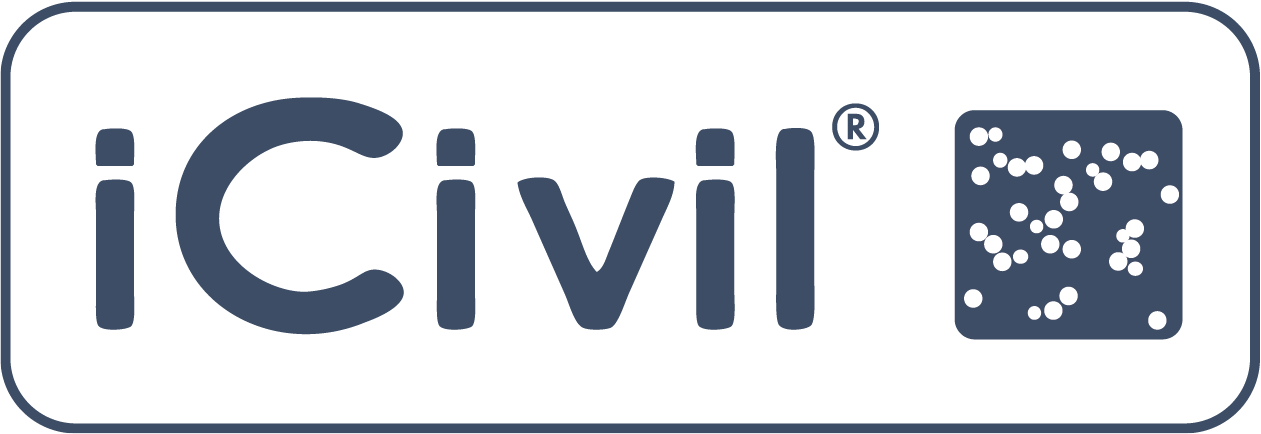In this article, we are going to prove in 8 points why iCivil is the only CRVS solution that is capable of meeting the roadmap’s requirements.
1/ iCivil is the only CRVS solution that declares and pre-registers 100% of individuals at birth
According to Article 6 of the Universal Declaration of Human Rights and Article 7 of the Convention of the Rights of the Child, every individual has the right to “be registered immediately after birth, the right from birth to a name and the right to acquire a nationality”. iCivil was designed to register births shortly after a child is born. The registration is performed at the maternity hospital (or sometimes, a little later, when a mother presents her newborn for the first vaccines). The nurse (or authorized hospital staff) simultaneously declares and pre-registers the newborn baby and thus replaces the civil registration officer for this task. Days, weeks and even years later, the civil registration officer can finalise the newborn’s registration. All the parents need to do is to present the bubble bracelet to the registration officer who will confirm the baby’s registration. See iCivil working in real life here.
2/ iCivil is a universal and interoperable solution
iiCivil is not only a highly effective birth declaration and registration solution, it is also a universal identification system for individuals. Thanks to the bubble code, that generates a unique identification number, and whose proof is backed-up by the bubble bracelet, this unique and un-falsifiable number can be used for the identification of national citizens. It can be used to issue ID papers, to manage health services, organise elections, banking services, driving licenses, notarial acts… With iCivil, every vital event (birth, marriage, divorce, death), enriches the demographic statistics of a country in real-time. iCivil is an outstanding planification and governing tool.
3/ iCivil is a solution that provides reliable data, at every geographical and admnistraive level, for an accessible cost
4/ iCivil creates a holistic CRVS ecosystem and addresses the "stock" of older individuals who are deprived of a legal identity
A holistic CRVS solution would not be complete if it didn’t declare, register, generate statistics and enable them to be harmonized with other government administrations. It also wouldn’t be complete if the civil registration database could not be updated in real time and shared with national and international public services. Beyond public service management, iCivil is operational for the registration and census of older individuals. iCivil helps international institutions apprehend humanitarian crises better with a solid knowledge of the population who is affected, and the possibility to update the data in real-time (i.e. for refugees). Hence, iCivil is a solution that follows the individual for their entire lives: from their digital birth to their digital death, and all the civil events in between such as marriage, divorce, adoption… The bubble bracelet is designed to last 250 years and is the guarantor of the individual’s digital life.
5/ iCivil generates a physico-digital identification number that is un-falsifiable and interoperable
The genius in the iCivil solution is in its bubble code. Find out more about this technology here. The bubble code, invented by Prooftag, generates a unique identification number. This number cannot be predicted in advance, nor hacked because is isn’t generated by an algorithm: it’s generated by nature and chaos. Consequently, the number is unpredictable and there cannot be any duplicates. This unique number can be used to identify the individual at the civil registration office, in national identity management systems, and in a myriad of services that require an ID number. For every country, iCivil generates a unique alpha-numeric code beginning with the ISO code of the country and witholding 10 alphanumeric characters from 0 to Z. In essence, this unique identification number can be used to establish solid and durable systems, avoid double-usage of identification codes and paves the way to significant public savings. Hence, public services improve. This unique number is so unique, it prevents any ethnical and sexual discrimination. The total unicity of this identification number permits a double interoperability between states and therefore solves the issues of vaccinal follow-up in migrating populations continent-wide. It’s one of the reasons why iCivil was awarded with an INFUSE Pacesetters prize from GAVI.
6/ iCivil improves the harmonization of state systems on the whole Afrian continent
In the concept note, the ministers are pleading for a system that harmonizes digital identification platforms. It’s exactly what iCivil accomplishes. You can read about it in our White Paper. According to the African ministers, the harmonization of identification systems is considered as an acceleration platform for the African Continental Free Trade Area.
7/ iCivil protects identity
Cybersecurity and identity theft is one of the major issues of our century. In opposition to many CRVS solutions, iCivil has an authentication system that is based on 2 factors (and incidentally 3 factors if you integrate biometrics). These 2 factors are the proof of identiy of the individual: the bubble bracelet (or bubble card for adults) prevents identity theft.

